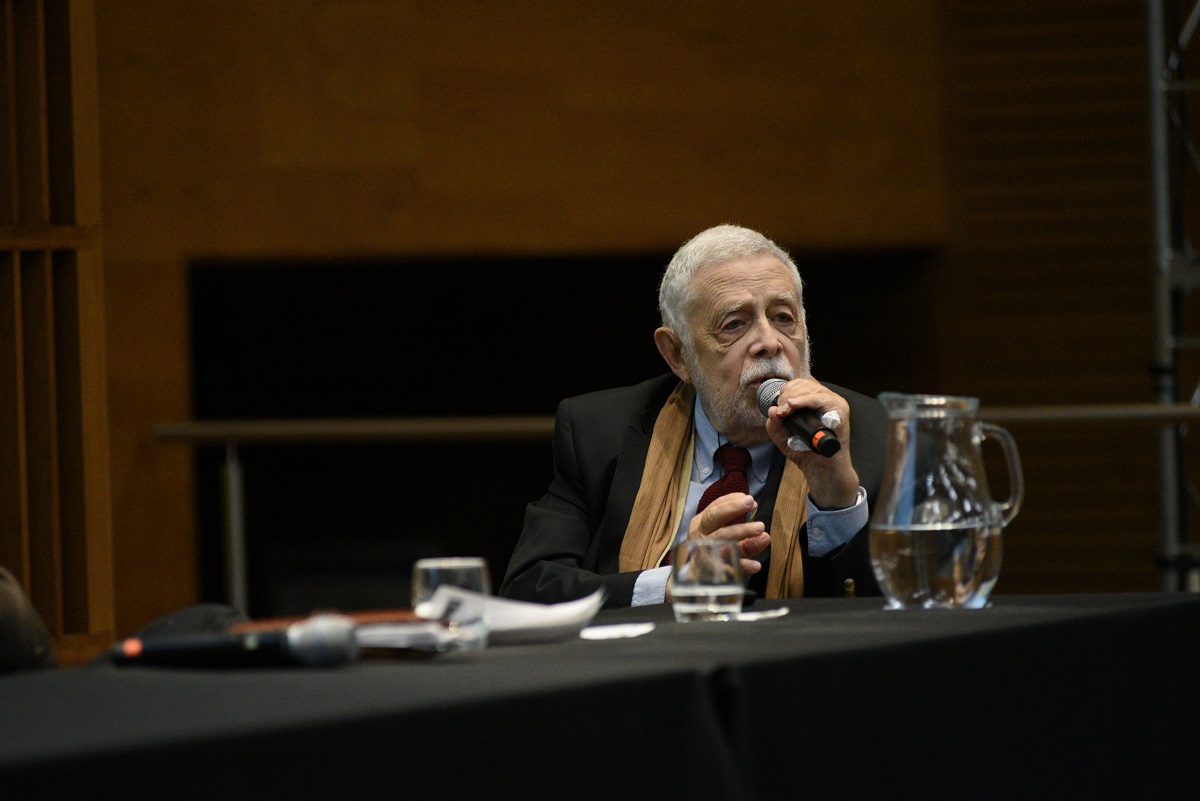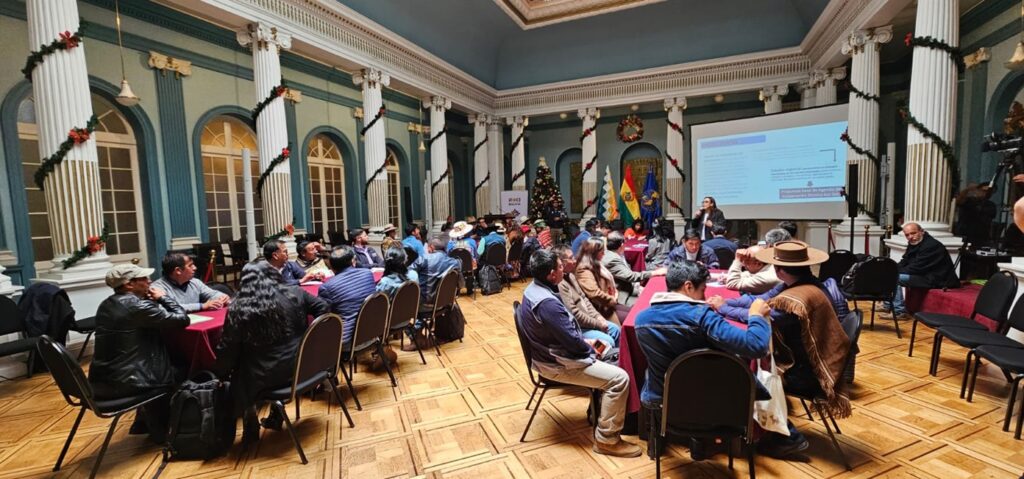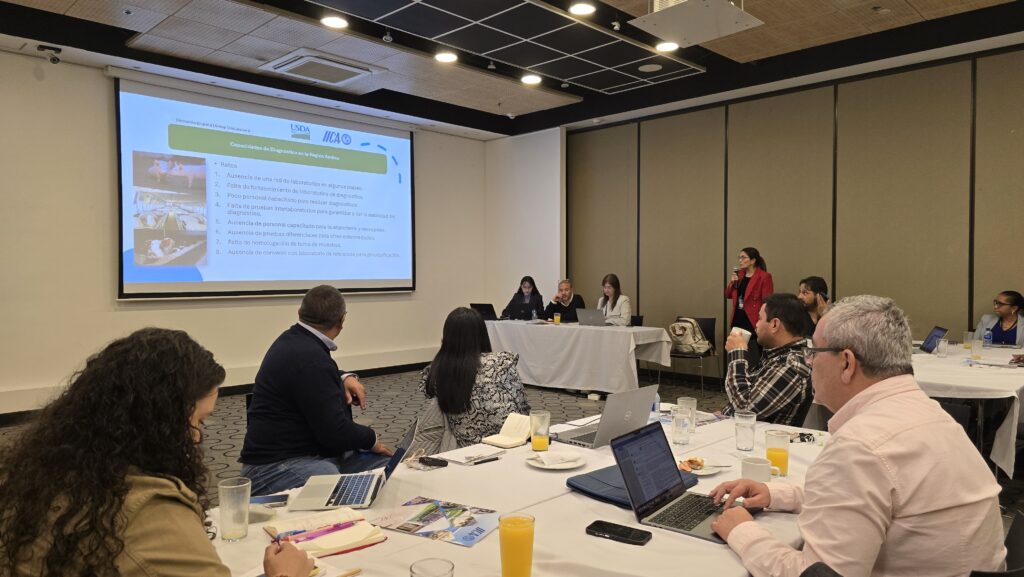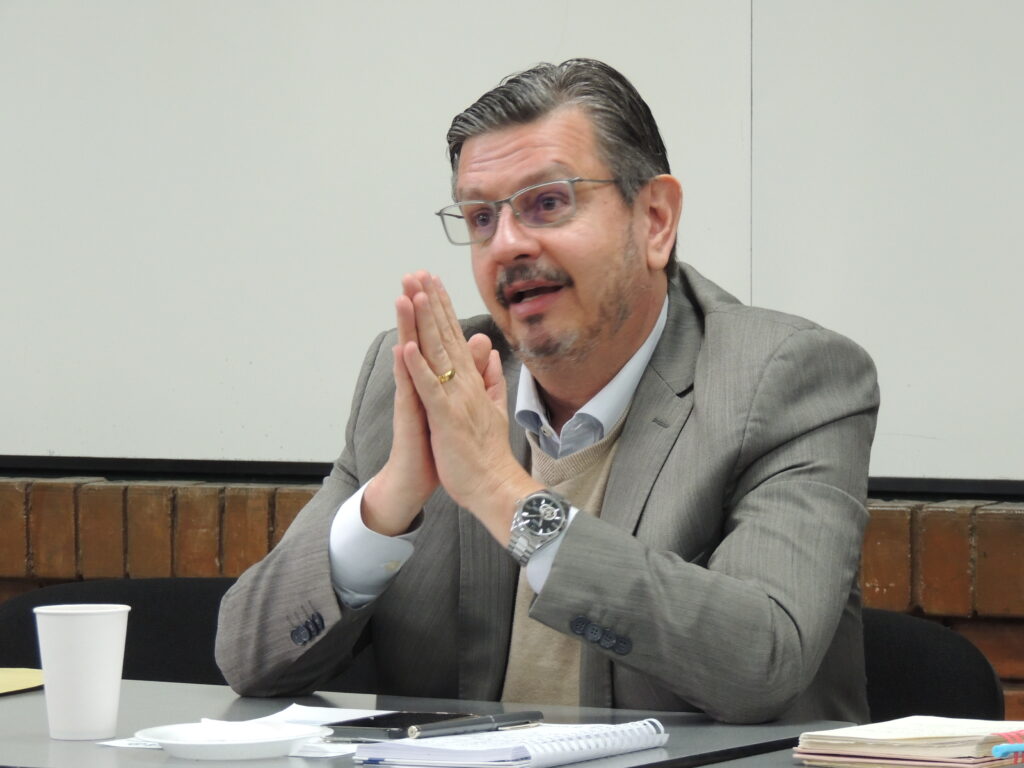Así lo explicó Trigo en el auditorio del Ministerio de Ciencia, Tecnología e Innovación (MinCyT) de Argentina, escenario de este encuentro científico de alto nivel, que fue coorganizado por el gobierno argentino, el ICABR y el IICA.

Buenos Aires, 7 de julio de 2023 (IICA) – “Estoy convencido de que el futuro de nuestra región pasa por la consolidación de la bioeconomía como visión del desarrollo”, afirmó Eduardo Trigo, referencia mundial en temas de desarrollo agropecuario y asesor del programa de Innovación y Bioeconomía del Instituto Interamericano de Cooperación para la Agricultura (IICA). Trigo brindó una de las disertaciones más esperadas durante la 27ª Conferencia Anual del Consorcio Internacional de Investigación en Bioeconomía Aplicada (ICABR, por sus iniciales en inglés), que reunió en Buenos Aires a los más importantes investigadores y científicos del mundo en esta materia, durante cuatro jornadas de trabajo y discusión.
“A la bioeconomía podemos definirla como el aprovechamiento de los recursos biológicos para la producción de bienes y servicios a lo largo y ancho de la economía. Sin duda constituye una tremenda oportunidad de desarrollo para América Latina y el Caribe porque esta región es una de las más importantes, sino la más importante, plataforma fotosintética del planeta. Con esto me refiero a la posibilidad que tenemos de transformar la energía solar en energía aprovechable por el hombre. En consecuencia, estamos en condiciones de generar múltiples opciones a la economía fósil. Esto nos posiciona frente a los desafíos que se vienen en las próximas décadas con motivo del cambio climático y la necesidad de alcanzar los Objetivos de Desarrollo Sostenible (ODS), de los que todavía estamos muy lejos”.
Así lo explicó Trigo en el auditorio del Ministerio de Ciencia, Tecnología e Innovación (MinCyT) de Argentina, escenario de este encuentro científico de alto nivel, que fue coorganizado por el gobierno argentino, el ICABR y el IICA. Durante los últimos seis años, el organismo de desarrollo rural del continente ha apoyado a los países en temas de sensibilización, formación de capacidades, fortalecimiento de políticas y promoción de negocios de la bioeconomía en las cadenas de valor del agro del continente.
La región es una enorme productora de biomasa, lo que abre la puerta a un gran desarrollo de la bioeconomía que mejore la calidad de vida de los habitantes de las zonas rurales del continente. En ese sentido, el destacado especialista consideró que “la biomasa, siempre, tiene una dimensión territorial. Yo siempre digo que la biomasa viaja mal, porque es antieconómico transportarla a distancias muy largas. Esto marca una diferencia muy grande con el petróleo y tiene que ver con que las concentraciones energéticas son muy distintas. Así, la biomasa, tiene que ser procesada y aprovechada localmente, lo que significa cambiar totalmente el modelo del despliegue territorial y abre para las zonas rurales de nuestra región oportunidades muy importantes”.
Trigo es doctor en Economía Agrícola por la universidad estadounidense de Wisconsin y tiene una amplia experiencia como consultor de organismos nacionales e internacionales en temas de bioeconomía y en el área de ciencia y tecnología aplicada a la producción agropecuaria. Por eso fue uno de las voces más escuchadas por más de 150 científicos de las Américas, Europa y África durante el encuentro de Buenos Aires.
“Que esta conferencia se realice en América Latina refleja la importancia de la región en la bioeconomía global. Estamos ante una tremenda oportunidad para interactuar con los países más avanzados y los científicos más prestigiosos. No me equivoco si digo que es este el evento de mayor trascendencia global para la discusión sobre adónde va la bioeconomía”, explicó.
Desde el inicio de los tiempos
Durante su disertación –titulada “Hacia una agenda de investigación para la construcción de la bioeconomía como visión para el desarrollo sostenible”- Trigo dijo que la bioeconomía, lejos de ser una novedad, es prácticamente tan antigua como el hombre.
“Desde el inicio de los tiempos la bioeconomía ha estado con nosotros. No importa cómo lo definamos. Ha estado presente en cada sociedad en su tiempo, ajustada a la época. En cada momento se aprovecharon los conocimientos para utilizar lo biológico. Con la agricultura, la fermentación o los biocombustibles hacíamos bioeconomía sin saberlo. Por lo tanto, la bioeconomía es algo muy tradicional, pero también es muy moderno”, explicó.
El experto dijo, en ese sentido que, si bien la bioeconomía está basada siempre en el aprovechamiento de los recursos naturales para la actividad industrial, hay grandes diferencias en la implementación entre las economías maduras desde el punto de vista tecnológico y los países en desarrollo. En el caso de la región, consideró que el foco debe colocarse en integrar a los pequeños productores a la bioeconomía.
“América Latina y el Caribe –afirmó- tiene 21 millones de unidades productivas en agricultura y dos terceras partes de ellas son familiares. Es un número demasiado alto para que la bioeconomía pueda progresar sin una propuesta coherente sobre cómo integrar a ese sector”.
“Nuestra región incluye a ocho de los 15 países considerados megabiodiversos en el mundo y ya nadie discute que la diversidad es un recurso estratégico. Tenemos que avanzar en caminos para aprovecharlo”, concluyó.
Más información:
Gerencia de Comunicación Institucional
comunicacion.institucional@iica.int










